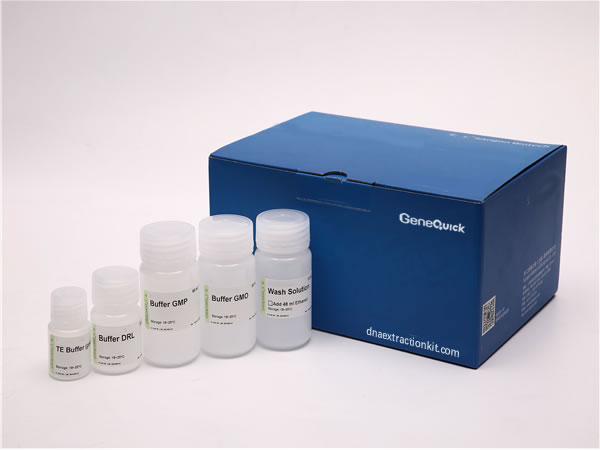What is a Clinical DNA Extraction Kit for NIPT?
A Clinical DNA Extraction Kit for NIPT (Non-Invasive Prenatal Testing) is a specialized laboratory tool designed to isolate and purify DNA from maternal blood samples. This process is crucial for safely analyzing fetal DNA without any risk to the pregnancy, as it relies on a simple blood draw from the mother. The kit ensures that the extracted DNA is of high quality and free from contaminants, making it suitable for downstream genetic analyses that screen for chromosomal abnormalities like Down syndrome.
These kits are engineered to handle the unique challenges of prenatal testing, such as the low concentration of fetal DNA in maternal blood. By providing a reliable method for DNA extraction, they support accurate and early detection of genetic conditions, helping healthcare providers offer informed guidance to expectant parents. The non-invasive nature of this testing method has revolutionized prenatal care, offering a safer alternative to traditional invasive procedures.

Technical Specifications
| Model | Method | Sample | Application | Format | Workflow |
|---|---|---|---|---|---|
| C-M-BLD-20R | Magnetic Beads | Blood | Clinical | 20R | Manual |
| C-M-BLD-50R | Magnetic Beads | Blood | Clinical | 50R | Manual |
| C-M-BLD-100R | Magnetic Beads | Blood | Clinical | 100R | Manual |
| C-M-BLD-200R | Magnetic Beads | Blood | Clinical | 200R | Manual |
| C-M-BLD-8R | Magnetic Beads | Blood | Clinical | 8R | Semi-automated or Full Automation |
| C-M-BLD-24R | Magnetic Beads | Blood | Clinical | 24R | Semi-automated or Full Automation |
| C-M-BLD-48R | Magnetic Beads | Blood | Clinical | 48R | Semi-automated or Full Automation |
| C-M-BLD-72R | Magnetic Beads | Blood | Clinical | 72R | Semi-automated or Full Automation |
| C-M-BLD-96R | Magnetic Beads | Blood | Clinical | 96R | Semi-automated or Full Automation |
Working Principle
The principle behind a Clinical DNA Extraction Kit for NIPT involves leveraging the presence of cell-free fetal DNA (cffDNA) in maternal blood, which originates from the placenta. The kit uses biochemical methods to lyse cells and release DNA, followed by binding it to a solid phase, such as magnetic beads or silica columns, to separate it from other blood components.
After binding, impurities like proteins and inhibitors are washed away through a series of buffers, and the purified DNA is eluted in a solution ready for analysis. This process ensures that the fetal DNA is isolated efficiently while preserving its integrity, which is critical for accurate amplification and sequencing in NIPT protocols. The entire procedure is designed to be rapid and scalable, fitting into high-throughput clinical workflows.
Performance
The performance of a Clinical DNA Extraction Kit for NIPT is evaluated based on its efficiency in isolating high-quality fetal DNA from maternal plasma. It typically achieves high yields with minimal fragmentation, ensuring that the DNA is intact and suitable for sensitive molecular techniques like next-generation sequencing. This leads to reliable test results with low rates of false positives or negatives, which is essential for clinical decision-making.
In rigorous testing environments, these kits demonstrate consistency across multiple samples and batches, maintaining performance under various storage and handling conditions. They are optimized for use with automated systems, reducing human error and increasing throughput in diagnostic laboratories. This reliability supports the growing demand for NIPT in routine prenatal screening programs worldwide.
Application
Clinical DNA Extraction Kits for NIPT are primarily used in medical settings for non-invasive prenatal testing, where they enable the detection of fetal genetic disorders from a maternal blood sample. This application is vital for screening conditions such as trisomies (e.g., trisomy 21 causing Down syndrome), sex chromosome abnormalities, and other genetic variations early in pregnancy.
Beyond routine screening, these kits are also employed in research studies focused on fetal development and genetic diseases, as well as in clinical trials for new prenatal diagnostics. Their use supports personalized medicine by providing data that can guide interventions and counseling, ultimately improving maternal and fetal health outcomes without invasive risks.
Core Features and Advantages
The core features of a Clinical DNA Extraction Kit for NIPT include high sensitivity for low-abundance fetal DNA, robustness against sample variations, and compatibility with automated platforms. These kits often come with pre-measured reagents and user-friendly protocols, reducing the need for extensive training and minimizing the potential for errors in busy laboratory environments.
Key advantages include the non-invasive nature of the sample collection, which enhances patient safety and comfort, and the ability to provide results early in pregnancy. Additionally, these kits support cost-effective testing by streamlining the extraction process and reducing reagent waste, making NIPT more accessible in diverse healthcare settings. Their design prioritizes reproducibility, ensuring consistent performance that meets regulatory standards for clinical diagnostics.